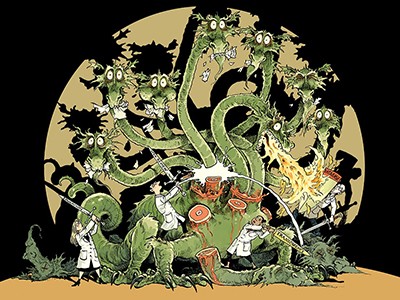Singapore is doing well, but underlying this I would wonder if there is a skew towards countries with English as the official language.
adssx
#63
This chart shows the top global research universities, as ranked by U.S. News & World Report. So there might be a bias. If you look at the Shanghai ranking, there are a few other non-Anglo universities but not that much more: ShanghaiRanking's Academic Ranking of World Universities Same in other rankings (THE and QS).
2 Likes
Top centres will attract better researchers and have more choice, but not finding any universities from continental europe in the first list was surprising.
In the end, however, it does not matter from the perspective of science.
1 Like
adssx
#65
Continental Europe is underfunded. They’re still punching above their weight (or wealth) if you check the top 100 ARWU (Shanghai Ranking).
2 Likes
Nice to see UofT at #16
Maybe Canada can attract more talent now 
1 Like
Chinese university students are paying journals to publish their papers as a quicker way to get into grad school. Even more reason not to trust Chinese papers.
3 Likes
Besides the issue of research quality and retraction, there is also the issue that the study population could greatly affect the outcomes. In fact, this could explain some of the cases where a research finding in China, say, doesn’t replicate when tested in the U.S. (“heterogeneity”).
For example, people living in some countries supposedly have microbiomes containing more of the types of bacteria that readily convert ellagitannins and ellagic acid to Urolithin A, than do others. If one does a study showing how walnut consumption affects health, maybe when performed in one country with high amounts of those types of bacteria, one sees a strong positive signal; but then when done in another country, one doesn’t. And then it’s tempting to conclude that it must be because the people who ran that first study were committing fraud somewhere along the way.
This also extends to mouse studies for longevity. The differences in the microbiomes of the mice under study in different labs could explain the differences seen when certain supplements are tested.
One could turn this around and use the phenomenon to help find supplements or drugs whose efficacy is strongly impacted by the microbiome – look for studies with extreme heterogeneity, but where the labs performing them are reputable.
4 Likes
Hundreds of suspicious journals flagged by AI screening tool
System that searches for signs of bad practice could help to weed out questionable titles.
Researchers have identified more than 1,000 potentially problematic open-access journals using an artificial intelligence (AI) tool that screened around 15,000 titles for signs of dubious publishing practices.
The approach, described in Science Advances on 27 August1, could be used to help tackle the rise in what the study authors call “questionable open-access journals” — those that charge fees to publish papers without doing rigorous peer review or quality checks.

Predatory publishers’ latest scam: bootlegged and rebranded papers
None of the journals flagged by the tool has previously been on any kind of watchlist, and some titles are owned by large, reputable publishers. Together, the journals have published hundreds of thousands of research papers that have received millions of citations.
The study suggests that “there’s a whole group of problematic journals in plain sight that are functioning as supposedly respected journals that really don’t deserve that qualification”, says Jennifer Byrne, a research-integrity sleuth and cancer researcher at the University of Sydney, Australia.
The tool is available online in a closed beta version, and organizations that index journals, or publishers, can use it to review their portfolios, says study co-author Daniel Acuña, a computer scientist at the University of Colorado Boulder. But, he adds, the AI sometimes makes mistakes, and is not designed to replace detailed evaluations of journals and individual publications that might result in a title being removed from an index. “A human expert should be part of the vetting process” before any action is taken, he says.
Read the full writeup:
https://www.nature.com/articles/d41586-025-02782-6
4 Likes
I am a bit depressed about all this. Chinese papers have a high probability of being faked and the gold standard American papers are having research defunded and cut. It’s going to be a while before we start getting significant scientific advancements going forward. Not to mention all the research that was nearing completion and cut.
I hate to say it, but big pharma is probably our best bet for longevity advancement for the next 5-10 years.
2 Likes
An investigation has identified more than 1,500 research articles produced by a network of Ukrainian companies that could be one of Europe’s largest paper mills — businesses that produce fake or low-quality research papers and sell authorships.
Anna Abalkina, a research-integrity sleuth and social scientist at the Free University of Berlin, discovered the paper mill in 20221 after spotting papers with author e-mail addresses that had domains that did not match the geographical locations of academic affiliations. She dubbed the paper mill Tanu.pro after the most frequently used of these unusual domains.
https://www.nature.com/articles/d41586-025-02809-y
2 Likes